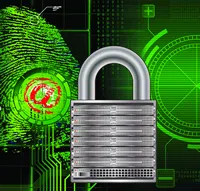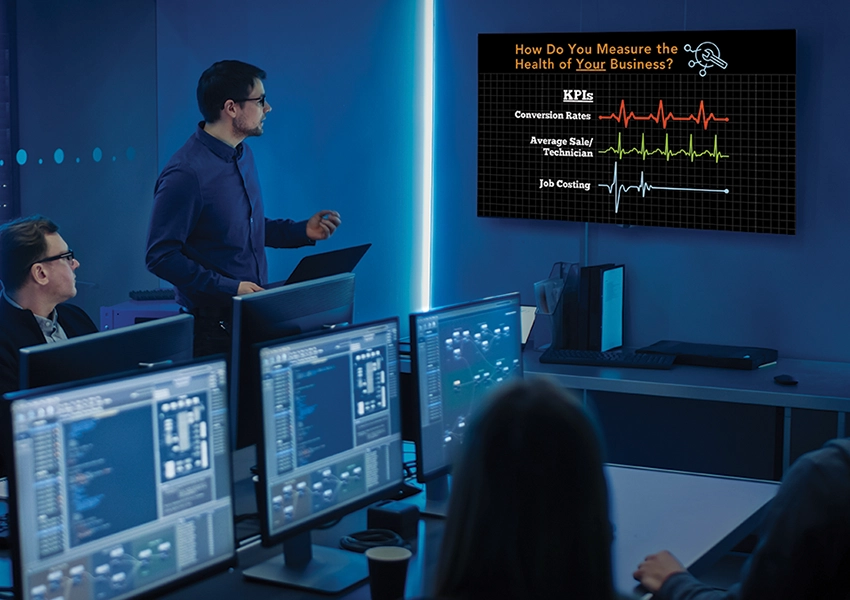The world of cybersecurity is constantly evolving, and as we enter 2024, the need for robust security measures has never been more critical. If you think of people in the cybersecurity field as individuals prone to using scare tactics to get their message across, think again. Just ask anyone on the receiving end of a phishing attack, a virus that ruined their contact database or a ransomware assault holding their entire company hostage.
Surprisingly, by taking a few steps and focusing on the issue of cybersecurity, you can significantly decrease the chances of becoming a victim.
The steps you should take include:
Multi-Factor Authentication and Advanced Endpoint Detection and Response (EDR).
Let's be blunt: Cybersecurity breaches can devastate the finances and reputation of your business. To counter these risks, one crucial step is implementing Multi-Factor Authentication (MFA). This might seem straightforward today, but some companies still ignore what has become a commonplace security measure. MFA is still a sturdy defense with some inherent limitations on texting, which is why Google, Apple and Amazon are heading toward passkeys.
(Microsoft is starting to roll out passkeys this year, according to the Wall Street Journal.) Passkeys are unique, can't work on fake sites and can require access by a face or fingerprint scan.
Endpoint Detection and Response (EDR) solutions are another critical defense tool. EDR tools continuously monitor endpoints for suspicious activities and respond swiftly to potential threats. It's important to note that cyber insurance companies often require that businesses (and consumers) implement these tools. Fortunately, these tools are readily available and affordable, costing around $10 monthly.
Employee Training
The human element offers hackers the most opportunities. One of the weakest links in cybersecurity is human error. Cybercriminals frequently use social engineering techniques like phishing to exploit unsuspecting employees. Online scammers use phishing by sending enticing emails to businesses and organizations to collect sensitive information. When you click on the email link, it allows the scammer access to sensitive company information, including financial data. Organizations should invest in training programs and regular reviews to counter this threat by teaching employees how to identify suspicious emails. You need to remind employees to report any phishing incidents.
Additionally, organizations should implement policies to secure their physical locations. Unauthorized access to an office can lead to data breaches, and controlling network access points is vital for overall security.
Network Security
It is surprising how often companies overlook aspects of their physical network security. It's important to deactivate the network ports that you don't use. Failing to do so allows unauthorized individuals to gain access to your network. This should become a basic policy whenever you temporarily deactivate these ports.
Software Patching
Software patching is one of the easiest and most fundamental rules for cybersecurity. Hackers often use outdated software entry points to breach the system because the target – your business – failed to update your software regularly. Sometimes, it's no more than agreeing to the update. Also, some insurance companies mandate that you keep your software programs updated because software designers often recognize "holes" in their systems only after they release a new version. And in the hacker world, they quickly learn and share the security shortcomings of popular software programs. In short, the software program you use isn't forever. It's only current until the next update.
Immutable Backups
What happens if you have a cybersecurity event? Having reliable backups is crucial for data recovery. However, hackers have been known to compromise backups to prevent recovery. To counter this, businesses should create an immutable backup that no one can alter or tamper with. You protect the business by creating a point-in-time backup that remains untouched until you need it. While you might lose some data (depending on the date of the immutable backup), it becomes the proverbial lifesaver to recover from a cybersecurity attack.
Outsourcing Cybersecurity
When discussing the potential gloom and doom of cybersecurity, the most basic question arises: Who is going to do all this regularly? For most small to medium-size businesses (SMBs), outsourcing cybersecurity is both practical and the most cost-effective. Cybersecurity experts can provide access to advanced tools and technologies that SMBs might be unable to afford independently. The bottom line is that an internal security expert or team, along with the tools they need, can become quite expensive. Keep in mind that while you might already have your "IT person," it doesn't necessarily mean they are well-versed beyond the basics in cybersecurity. This is where you should shop around for an experienced and affordable specialist.
Understanding the Target
In my decades of experience, I always marvel at how many small and medium-size businesses assume they're "too small" or unimportant to be an attractive target for cybercriminals. This reasoning is dead wrong. Hackers will often attack smaller targets to gain access to a much larger target, in other words, your customer or client. In one notable case, a local HVAC vendor's compromise led to a massive data breach at a major U.S. retailer. Think of it this way. Your cybersecurity efforts not only protect you but also your customers or clients. The repercussions of someone gaining entry to them via your network can have enormous negative business and even legal ramifications.
To stay secure and meet insurance requirements in 2024, companies should implement multi-factor authentication, advanced endpoint detection and response solutions, employee training programs, network security measures, software patching procedures and immutable backups, and consider outsourcing their cybersecurity needs.
Don't forget: NO company, regardless of size, is immune to cyber threats. You protect your company from future threats by taking steps now.
Anthony Mongeluzo started his IT business in his parents’ spare bedroom 23 years ago. Today, he is the president of PCS, a 250-person IT company that serves businesses of every size across the United States. PCS provides managed services, 24/7 IT helpdesk support, and cloud and cybersecurity solutions. Contact Anthony at anthony@helpmepcs.com or 877-596-4446.




